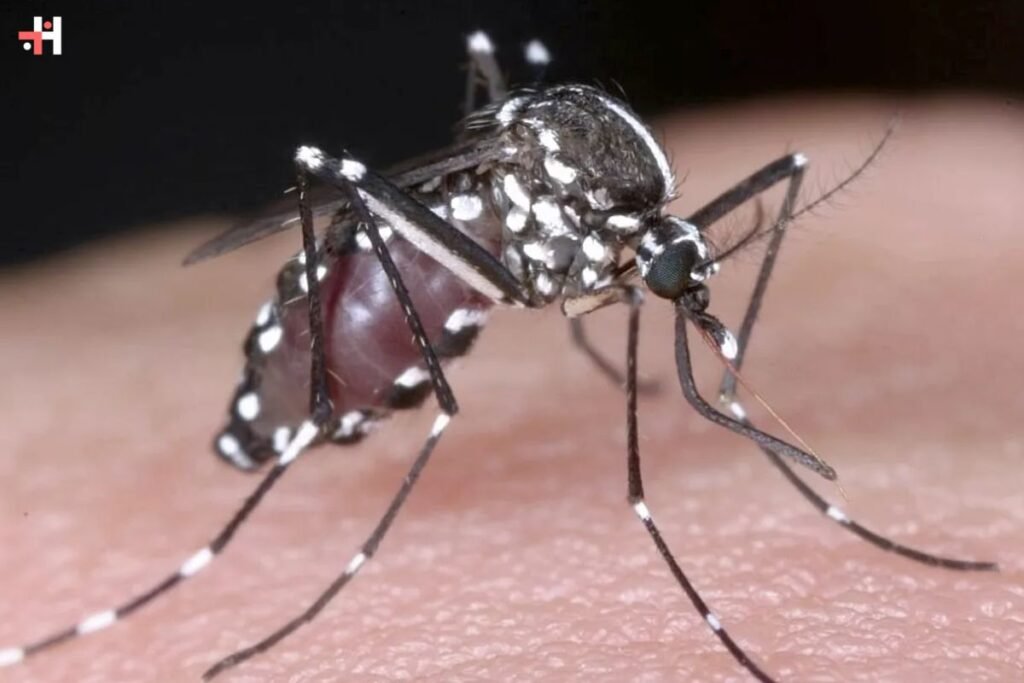(Source-www.euronews.com)
As the summer Olympic Games in Paris draw near, the organizers are grappling with numerous challenges of mosquito-borne viruses, ranging from unpredictable weather and strikes to the persistent threat of terrorism. However, one of the most pressing concerns that have been gaining attention is the potential health risks. According to Renaud Piarroux, head of department at Pitié-Salpêtrière (AP-HP) and an expert in epidemics, there is no need to fear a cholera outbreak in mainland France. Nevertheless, Eric Caumes, an infectiologist at the infectious and tropical diseases department of AP-HP, warns that there are other mosquito-borne viruses that pose a much more certain threat.
Mosquito-Borne Viruses: A Buzzing Threat
Dengue fever and chikungunya, both transmitted by mosquitoes, are two of the most concerning viral threats. “It is not a question of if, but when these epidemics will hit us,” says Eric Caumes. The unpredictable nature of mosquito-borne viruses makes it challenging to determine whether they will strike this summer or in the next decade. However, the increasing presence of the Aedes mosquito, the primary vector for these viruses, in France makes an outbreak almost inevitable.
Dengue fever, known for causing severe flu-like symptoms and potentially life-threatening complications, has already seen sporadic cases in southern France on high alert. Chikungunya, which causes joint pain and fever, has also made appearances. The potential for these mosquito-borne viruses to spread rapidly during an event as large as the Olympics is a significant concern. Measures such as mosquito control and public awareness campaigns are crucial to mitigate this risk.
The Silent Spread of West Nile Virus
Another mosquito-borne virus that poses a threat is the West Nile virus. While often asymptomatic, it can cause severe neurological diseases in some individuals. The virus is primarily transmitted through Culex mosquitoes, which are prevalent in France. The mild winter and wet spring have created favorable conditions for mosquito breeding, increasing the risk of an outbreak.
The Olympic Games, with visitors from all over the world, provide a perfect breeding ground for the virus to spread. Authorities are focusing on surveillance and mosquito control to prevent an outbreak. Public health campaigns are also essential to educate visitors and residents about the importance of using insect repellent and avoiding mosquito bites.
The Resurgence of Monkeypox
Monkeypox, a virus similar to smallpox but less severe, has seen a resurgence in recent years. Although primarily transmitted through contact with infected animals, human-to-human transmission is possible. France on high alert has reported several cases, raising concerns about a potential outbreak during the Olympics.
The crowded venues and close contact among visitors could facilitate the spread of monkeypox. Authorities are emphasizing the need for vigilant monitoring and rapid response to any suspected cases. Public health measures, including isolation and vaccination of close contacts, are being put in place to prevent an outbreak.
Tick-Borne Diseases: A Growing Concern
In addition to mosquito-borne viruses, tick-borne diseases such as Lyme disease and tick-borne encephalitis are also on the rise. The warm and humid weather has created ideal conditions for ticks, increasing the risk of these diseases. The large influx of visitors to outdoor events during the Olympics could lead to more cases.
Preventive measures, such as wearing protective clothing and conducting regular tick checks, are being promoted. Public health authorities are also working on increasing awareness about the symptoms and treatment of tick-borne diseases to ensure timely medical intervention.
Sexually Transmitted Infections: A Silent Threat
The risk of sexually transmitted infections (STIs) cannot be overlooked. Large gatherings like the Olympics often see an increase in risky behaviors, leading to a higher incidence of STIs. Public health campaigns focusing on safe sex practices and the availability of testing and treatment facilities are essential to address this issue.
As France prepares to host the Olympic Games, the focus on preventing the spread of various viral threats is paramount. While the challenges are significant, proactive measures can mitigate the risks. Enhanced surveillance, public health campaigns, and effective mosquito and tick control programs are essential. By addressing these health threats head-on, France aims to ensure a safe and successful Olympic Games.









